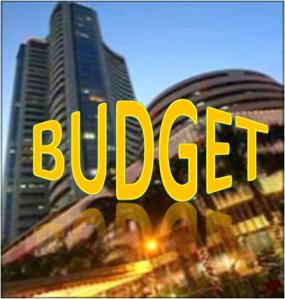
The word “Budget” is derived from an early 15th century French word, “Bougette”, which means purse or a leather bag. According to several popular accounts, Bougette or the purse was used by the British Chancellor to carry his papers, which he presented to the British Parliament. But, it was only in the year 1873 that the word was used particularly to describe an annual financial statement.
India’s first Union Budget was presented by Mr. R K Shanmukham Chetty, who served as a Finance Minister in Jawaharlal Nehru’s cabinet, on November 26, 1947. The present Finance Minister, Pranab Mukherjee’s budget speech 2011-12 was the 80st budget presentation in the history of independent India.
The Indian budget history can be broadly divided into two phases: 1) Pre-liberalization and 2) Post-liberalization.
Pre-liberalization :- India, after independence adopted socialist policies and its budget speeches reflected its protectionist attitude at the macro level. By the 70’s, India was considered as the most protected & controlled economies of the world and had more than half of its population living below the poverty line.
chartNov, 1947: India’s first budget was, more or less, an inspection of the state of Indian economy just after India’s independence. No new taxes were proposed at this time as the Budget day for 1948-49 was just 95 days away. Soon in 1949, Mr. R K Shanmukham Chetty had to resign due to his differences with Pandit Nehru.
1959-64 & 1967-69: Morarji Desai, who later also became the Prime Minister of India, has the distinction of presenting the maximum number of Budgets, 8, a record that stands even today. He also presented two interim budgets in both his first and second terms.
1982-85: Pranab Mukherjee became the first RajyaSabha (Upper House) member to present the budget as the finance minister of the country.
1987-89: Rajiv Gandhi was the 3rd prime minister to present the budget after Jawaharlal Nehru (1958-59) and Indira Gandhi (1969-70).
1991-92: It’s the year when the final and interim Budgets were presented by Finance Ministers of two different political parties. While Yashwant Sinha presented the interim budget, the final budget was presented by Manmohan Singh.
Post-liberalisation :- Manmohan Singh and his reforms completely changed the direction of Indian economic policy. Post-liberalization, India moved away from the state led economy and integrated itself with the world by way of imposing lesser controls on private business activities and lowering the entry barriers for new entrants, whether domestic or foreign. The GDP of India too grew enormously since 1991.
Post-liberalization, the Union Budget of India reflected the finance ministers’ attempts to come up with progressive pro-growth policies.
1992-93: The year marked the dawn of new era in the Indian economy. Manmohan Singh was back as India’s FM and opened up the economy, promoted foreign investments and reduced import duties.
1996-97 & 2004-08: Darling of Indian industries, P. Chidambram served as FM in United Front government in 1996-97. In 2008, got accolades for his policies that insulated India from the impact of recession.
24th Jan, 2009-till date: Pranab Mukherjee holds the position of a finance minister in the present UPA government and has been entrusted with the task of making pro-growth announcements in the forthcoming 2012-13 budget which is being delayed due to assembly polls which will start in less than a month’s time.


